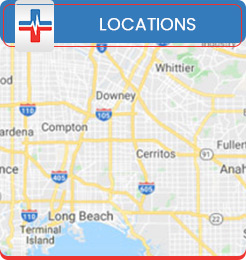How Much Does an EKG Cost Without Insurance in Downtown Long Beach, CA
The cost of an EKG without insurance in Downtown Long Beach, CA, is a significant consideration for many patients seeking heart health monitoring. While prices can vary, Dr. Usha Rani K. Reddy, M.D., at Reddy Urgent Care provides competitive self-pay rates, often ranging from $50 to $200, to ensure essential cardiac testing is accessible to everyone. For more information, please contact us or walk-in. We are located at 123 Atlantic Ave, Long Beach, CA 90802.


Table of Contents:
What is the cost for an EKG for uninsured patients, and are there any discounts or payment plans available in Downtown Long Beach, CA?
If I have Medicare, is the EKG covered as a preventive screening, or is it only covered when it is considered a medically necessary diagnostic test?
How often should a person with no symptoms or risk factors get a routine EKG for early detection?
Can an EKG provide insight into my risk of having a future heart attack or stroke, even if I feel healthy now?
The cost of an EKG for uninsured patients in Downtown Long Beach, CA, can vary significantly depending on the facility. At urgent care centers like Reddy Urgent Care, the price is often more competitive than at a hospital emergency room, typically ranging from $50 to $200. This pricing is more transparent and accessible for those without insurance. Many clinics understand the financial burden of healthcare and are willing to work with patients. You should always contact the clinic directly to get the most accurate pricing information and to inquire about potential discounts. Some urgent care centers offer a cash pay discount, which can lower the out-of-pocket cost. Additionally, payment plans or arrangements through third-party financing services like CareCredit may be an option to help manage the cost over time. It’s crucial to ask about all available options to make sure you can afford the necessary diagnostic test without financial stress.
For Medicare beneficiaries, the coverage for an EKG is highly specific. Medicare Part B covers an EKG as a medically necessary diagnostic test when a doctor orders it to diagnose or treat a medical condition. This means if you are experiencing symptoms like chest pain, shortness of breath, or an irregular heartbeat, the EKG will be covered. However, Medicare generally does not cover a routine EKG as a preventive screening for the general population. The one exception is during the “Welcome to Medicare” preventive visit, which you can get within the first 12 months of having Part B. During this one-time visit, a screening EKG may be covered if it is recommended by your doctor, but it is not part of the standard annual wellness visit that Medicare covers every year. Therefore, unless you are in your first year of Medicare Part B and a doctor recommends it, an EKG is only covered if you have symptoms that suggest a heart condition, making it a diagnostic tool.
For a person with no symptoms or known risk factors for heart disease, medical guidelines do not recommend a routine EKG. Major health organizations, including the U.S. Preventive Services Task Force, have found insufficient evidence to support the use of a routine EKG for screening asymptomatic, low-risk adults. The reasoning is that in this group, the test is more likely to produce a false positive result, leading to unnecessary and potentially more invasive follow-up tests, which can come with their own risks and costs. An EKG is a diagnostic tool, and its effectiveness is maximized when it is used to investigate specific symptoms or in individuals with known risk factors such as high blood pressure, diabetes, or a family history of heart disease. For low-risk individuals, focusing on a healthy lifestyle and managing standard risk factors is the primary recommendation for heart health.
An EKG can provide some valuable insight into your risk of a future heart attack or stroke, even if you feel healthy. While it’s not a definitive predictive tool, an EKG can reveal subtle abnormalities that indicate an increased risk. For instance, it can show evidence of a past “silent” heart attack that you may not have been aware of. It can also detect a condition called left ventricular hypertrophy, which is a thickening of the heart muscle often caused by high blood pressure, and is a significant risk factor for future cardiovascular events. An EKG may also pick up on certain arrhythmias, like atrial fibrillation, which can increase the risk of stroke. However, it’s crucial to understand that a normal EKG does not guarantee a healthy heart, as it does not show blockages in the arteries. It is best used as one part of a comprehensive risk assessment, alongside a discussion of your family history, cholesterol levels, blood pressure, and lifestyle factors. For more information, please contact us or walk-in. We are located at 123 Atlantic Ave, Long Beach, CA 90802. We look forward to serving you! We serve patients from Downtown Long Beach CA, Lakewood CA, Los Alamitos CA, Rossmoor CA, Wilmington CA, and surrounding areas.





